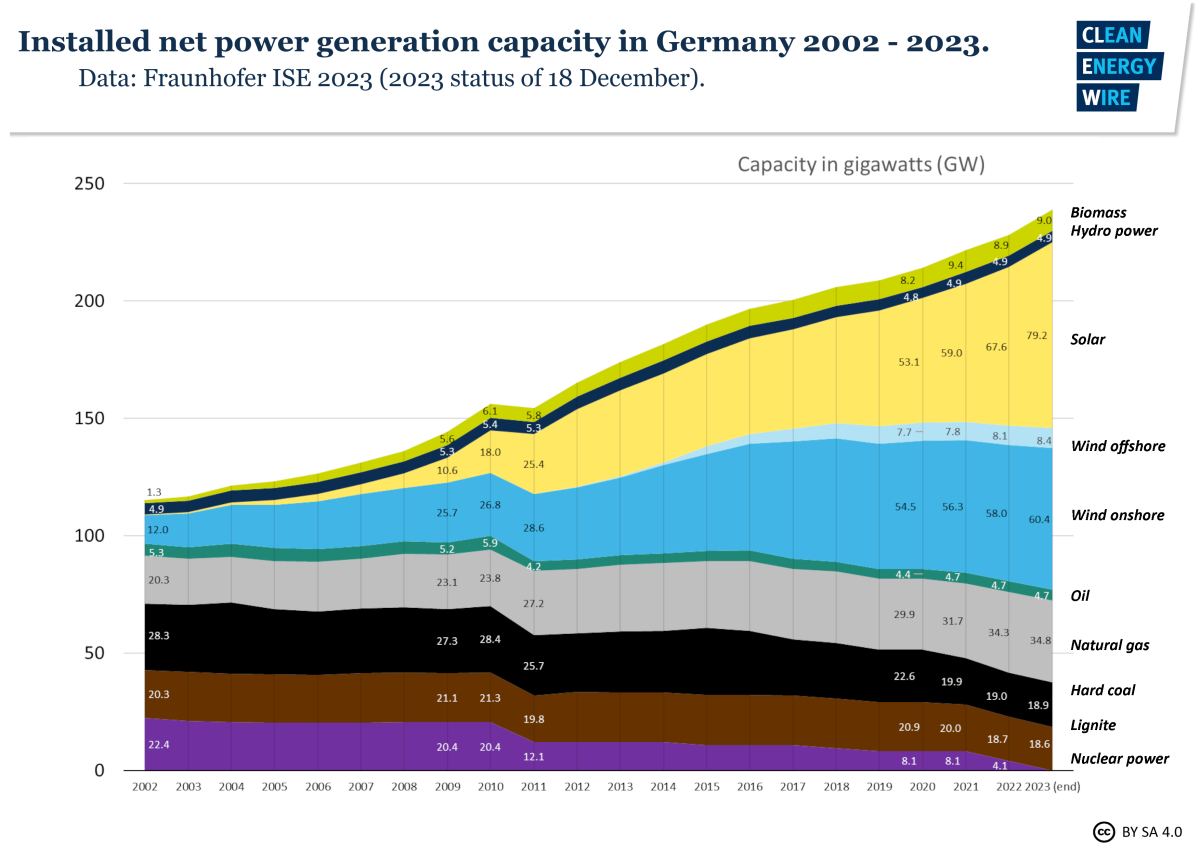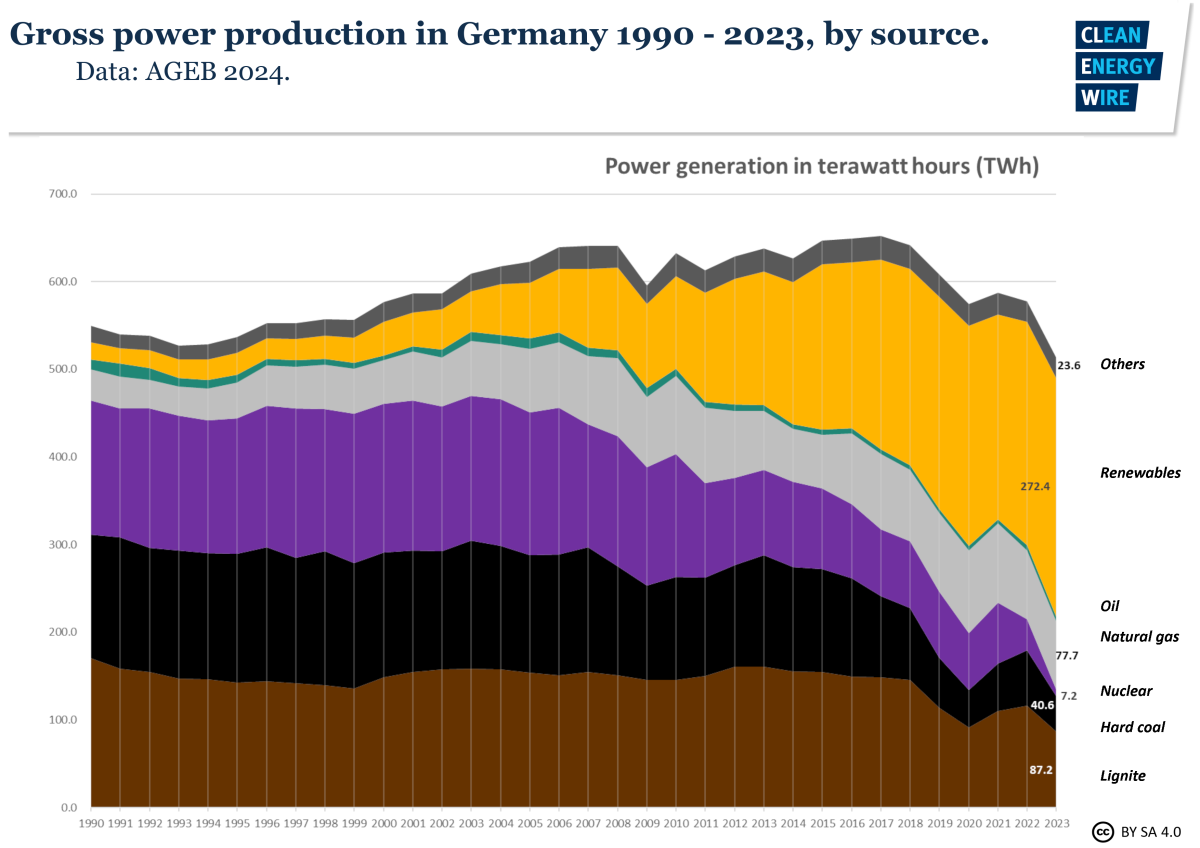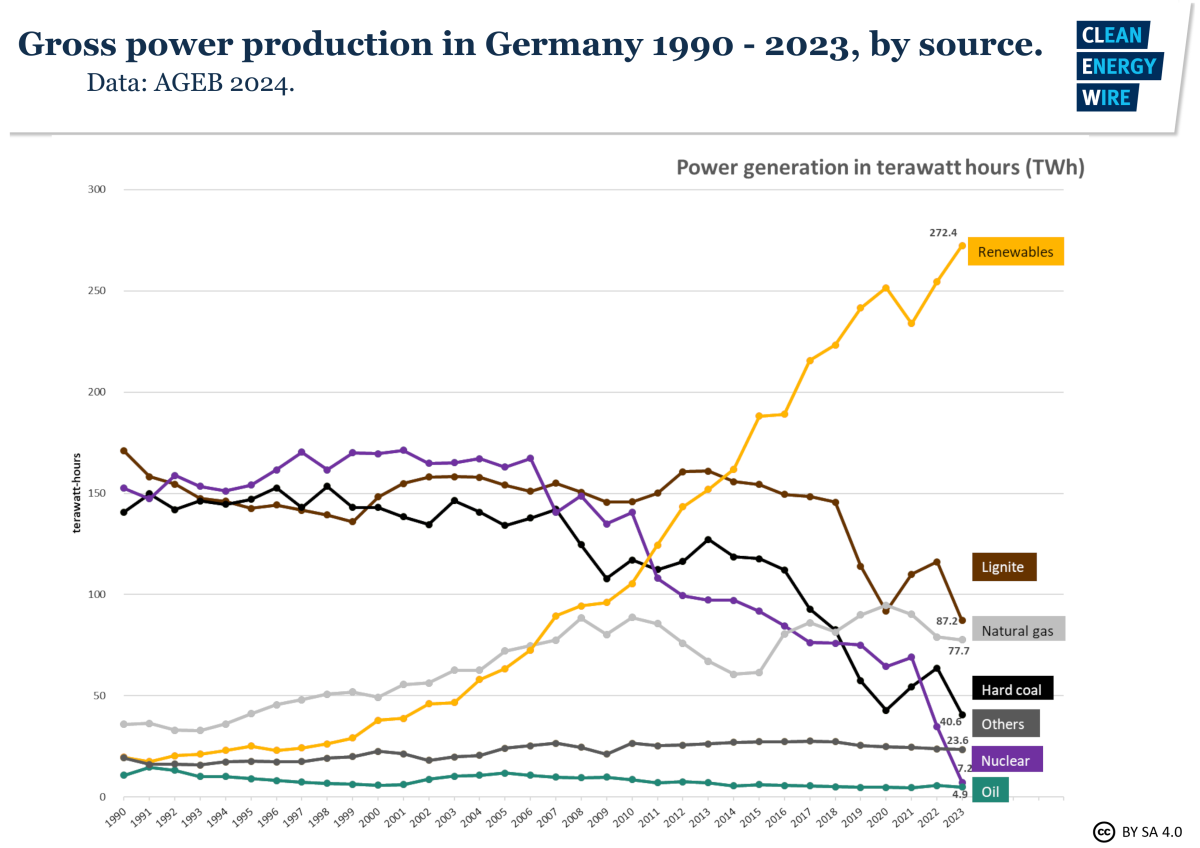For a country that people shat on a lot for closing their nuclear plants Germany is on the right track reducing their C02.
Germany based.
For real now? I thought they were going back to coal?
Thank you Germany, that’s impressive
I think Germany should have kept open their nuclear power plants as long as they could. But I don’t think opening new ones was the right idea.
Hopefully they keep making the gains they have.
No.
Schacht Konrad was a bad idea. Gorleben would’ve been a bad idea.
La Hague and Sellafield were bad ideas.
Nuclear risk aversion is democratically decided.
Nuclear energy discourages wind energy expansion, which is the better path for Germany IMO.
100% this, but idiots gonna complain because big oil pays propaganda to push nuclear wich needs years to build and is unreliable.
Hang on you are saying nuclear power has always been a bad idea? That a bit of an unusual view.
What I’m saying is it was good before wind and solar and is still cost effective to keep ruining once built. But I dont think new nuclear power plants should be built unless it’s for national security.
The combined risk of posthumanity pollution and catastrophic failures makes it a no-go for a risk averse society. Germany is spatially a comparably small country with high population density, there is not really a place where you easily can say no one lives here for the next thousands of years.
La Hague and Sellafield are or were places of necessary production chain segments with high pollution danger and history.
Zaporishja shows how dangerous centralised power production can be.
PV and wind energy were politically advocated for in Germany (California as well btw) before they were cheap and mass produced and efficient, even or especially against nuclear energy.
Austria actually is somewhat of a success story with a similar history.
It was always a bad idea and humanity should never have touched uranium at all. Would have saved us so much.
Here’s the graph over time.

Since this is capacity, intermittent sources like renewables will be overrepresented compared to actual usage, but the trends should still be accurate.
Edit: nvm, here’s actual usage


Some good looking graphs there.
Really living in a notable period of history right now. People will be reading about this time 100 years from now.
It’s the curse of “May you live in interesting times”
The good news is that the current government has systems in place, which should bring something like 79% of emissions to zero by 2050. What is really lacking is agriculture and trucks. There are plans to increase taxes on trucks to include a carbon price of 200€/t, which should help. Some of the EU agricultural legislation would also help with agricultural emissions, but those will propably never go to zero anyway.
The bad part is most of it is way to slow.
I remembered vividly when some people predicting soaring high coal electricity generation would occur in Germany for 2023 back in April. Of course, those who had been studying the actual Energiewende for a while knew that would never be the case.
Interestingly, most of Germany import in 2023 was also from renewables. One could say that German coal has been beatened by growing renewables both at home and abroad.





